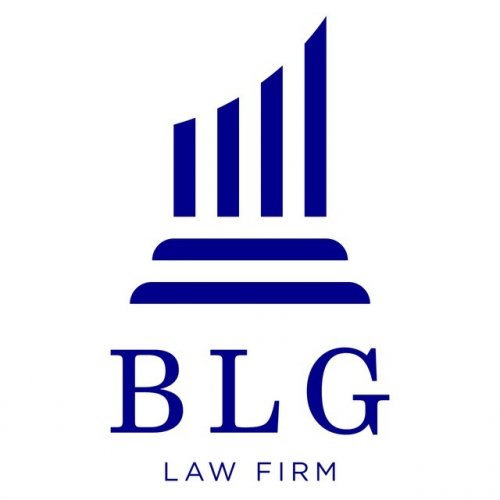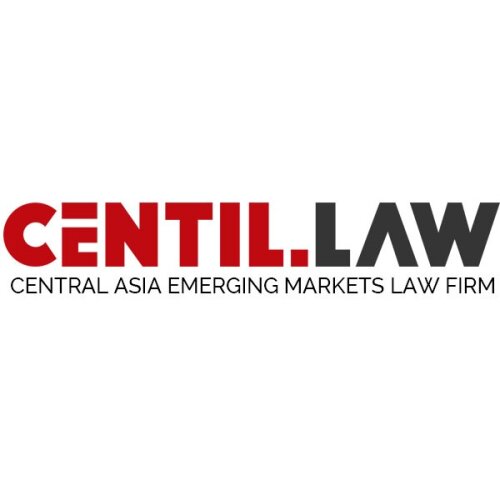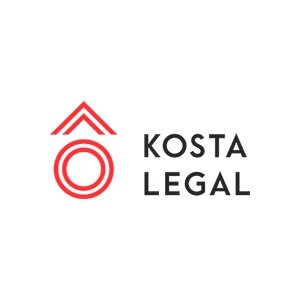Best Sustainable Finance Lawyers in Tashkent
Share your needs with us, get contacted by law firms.
Free. Takes 2 min.
List of the best lawyers in Tashkent, Uzbekistan
About Sustainable Finance Law in Tashkent, Uzbekistan
Sustainable finance refers to financial services and investments that consider environmental, social, and governance (ESG) criteria for long-term economic growth. In Tashkent, Uzbekistan, sustainable finance is emerging as a key aspect of the nation’s commitment to green economic development. Local financial institutions, regulators, and the government are gradually aligning financing activities with sustainable practices. The focus is on projects and investments that promote renewable energy, efficient resource use, and improved social outcomes. As awareness grows, sustainable finance is becoming more integrated into Uzbekistan’s banking, investment, and regulatory landscapes.
Why You May Need a Lawyer
Sustainable finance is a specialized field that involves complex laws, regulations, and international standards. You may need legal counsel in several situations, such as:
- Structuring green bonds or sustainable loans
- Ensuring compliance with local and international ESG requirements
- Navigating approval and reporting obligations for sustainable projects
- Drafting or reviewing contracts for finance agreements supporting environmental or social initiatives
- Resolving disputes related to sustainable investments or project funding
- Understanding tax incentives for sustainable investments
- Dealing with cross-border sustainable financial transactions
- Participating in government-supported sustainable finance programs
A lawyer skilled in sustainable finance can help you avoid legal risks, ensure project viability, and maximize the benefits of available regulations and incentives.
Local Laws Overview
Uzbekistan has started to lay the groundwork for sustainable finance through ongoing reforms and regulatory developments. While there is no single unified statute on sustainable finance, several laws and regulations shape the landscape:
- Environmental Protection Law - Sets environmental standards impacting sustainable project finance.
- Banking and Financial Laws - Govern the activities of financial institutions and influence how sustainable finance products are designed and offered.
- National Investment Policy - Encourages investments in renewable energy and green infrastructure, often tied to sustainable finance mechanisms.
- Tax Legislation - May provide incentives for investors and businesses engaging in sustainable activities.
- Government Green Programs - Initiatives like the Green Economy Strategy and energy sector reforms integrate sustainability factors into government spending and public-private partnerships.
- International Agreements - Uzbekistan’s participation in global sustainability agreements, such as the Paris Agreement, influences policy and regulatory reforms for sustainable finance.
As the regulatory landscape evolves, ongoing legal updates and guidance are essential for those engaged in sustainable finance activities in Tashkent.
Frequently Asked Questions
What counts as a sustainable finance project in Uzbekistan?
Sustainable finance projects include investments or loans that support environmentally or socially responsible initiatives, such as renewable energy, energy efficiency, green buildings, pollution control, and inclusive social programs.
Are there tax benefits for sustainable investments in Uzbekistan?
Tax incentives may be available for certain approved sustainable projects, particularly in renewable energy and resource efficiency. The specific benefits depend on government regulations and incentive programs in place at the time of application.
Is there a regulatory body that oversees sustainable finance in Uzbekistan?
There is no single dedicated regulator for sustainable finance, but several governmental agencies, including the Ministry of Economy and Finance, State Committee for Ecology and Environmental Protection, and Central Bank of Uzbekistan, play roles in policy development and oversight.
Can foreign investors participate in sustainable finance projects?
Yes, foreign investors are encouraged to participate in sustainable investments, especially in sectors prioritized by the government. However, legal due diligence and compliance with local regulations are crucial.
What risks should investors be aware of when pursuing sustainable finance in Tashkent?
Risks include regulatory changes, project approval delays, possible disputes regarding contract terms, foreign exchange risks, and evolving ESG standards. A qualified lawyer can help assess and mitigate these risks.
How do green bonds work in Uzbekistan?
Green bonds are debt securities issued to finance projects with environmental benefits. In Uzbekistan, these are still in the early stages but are permitted under banking and securities regulations, subject to project validation and disclosure standards.
Are there mandatory ESG disclosure requirements?
While Uzbekistan is developing its ESG framework, disclosure requirements are not yet fully standardized. Companies seeking sustainable finance are increasingly required to report on ESG factors, particularly for projects seeking international funding or government support.
Which industries in Uzbekistan are most active in sustainable finance?
Energy, agriculture, water management, waste treatment, and transport are some of the most active sectors, reflecting the government’s strategic focus on green transition and sustainable development.
How can businesses apply for sustainable finance support?
Businesses can apply through local banks, international financial institutions present in Uzbekistan, or through public-private partnership programs initiated by the government. Legal consultation is advisable to meet eligibility and compliance requirements.
What is the role of international organizations in shaping sustainable finance locally?
International organizations such as the World Bank, Asian Development Bank, and United Nations agencies support policy development, capacity building, and project funding, often working with the Uzbek government and local partners.
Additional Resources
Those seeking legal advice or information on sustainable finance in Tashkent can refer to the following resources:
- Ministry of Economy and Finance of the Republic of Uzbekistan - for policy and regulatory updates
- State Committee for Ecology and Environmental Protection - for environmental standards and project approvals
- Central Bank of Uzbekistan - for financial sector regulations affecting sustainable finance
- Uzbekistan Banking Association - for guidance on sustainable loan products and green bonds
- Chambers of Commerce and Industry - for networking and information on PPPs and joint initiatives
- International organizations (World Bank, EBRD, ADB, UNDP) - for funding programs, capacity development, and best practices
- Local law firms specializing in finance and environmental law - for expert legal services
Next Steps
If you need legal assistance with sustainable finance in Tashkent:
- Assess your specific needs or project requirements
- Gather relevant documents such as business plans, financial statements, or project proposals
- Contact a legal professional or law firm with expertise in sustainable finance, banking, and environmental law
- Schedule a consultation to discuss your goals and obtain tailored legal advice
- Follow up on recommended legal, regulatory, or procedural steps before committing to financing or investment
By working with a qualified lawyer, you can navigate the evolving legal landscape, ensure compliance, and contribute effectively to sustainable economic growth in Uzbekistan.
Lawzana helps you find the best lawyers and law firms in Tashkent through a curated and pre-screened list of qualified legal professionals. Our platform offers rankings and detailed profiles of attorneys and law firms, allowing you to compare based on practice areas, including Sustainable Finance, experience, and client feedback.
Each profile includes a description of the firm's areas of practice, client reviews, team members and partners, year of establishment, spoken languages, office locations, contact information, social media presence, and any published articles or resources. Most firms on our platform speak English and are experienced in both local and international legal matters.
Get a quote from top-rated law firms in Tashkent, Uzbekistan — quickly, securely, and without unnecessary hassle.
Disclaimer:
The information provided on this page is for general informational purposes only and does not constitute legal advice. While we strive to ensure the accuracy and relevance of the content, legal information may change over time, and interpretations of the law can vary. You should always consult with a qualified legal professional for advice specific to your situation.
We disclaim all liability for actions taken or not taken based on the content of this page. If you believe any information is incorrect or outdated, please contact us, and we will review and update it where appropriate.

















